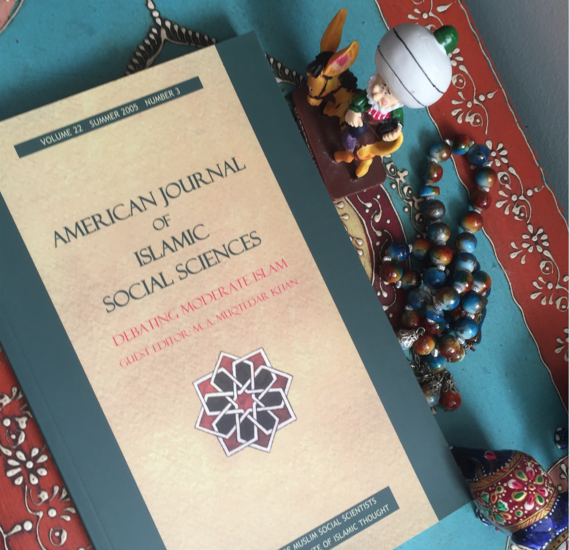Power is a function of knowledge.
Say: Are those equal, those who know and those who do not know? [Quran 39:9]
The Ummah is powerless because those who they consider as knowledgeable have failed for over 500 years to provide us with an empowering vision. The success of non-Muslims and the relative failure of Muslims in worldly matters can be explained only through the knowledge deficit that plagues the Muslim community. But still Muslim communities marginalize those who can potentially empower the Ummah, their social scientists. But these same scholars thrive in the mainstream world, enriching the rest of humanity and empowering it .
One of the most important objectives of Islam is to enable its followers to live an enlightened life.
The Quran does not hide its preference for those who possess knowledge and those, whose faith is tempered by reason. Muslims correctly value those who have knowledge and Ulema have for centuries determined how Muslims understand Islam and the world. But over time Muslims have mistakenly began equating knowledge with a narrowly defined conception of religious knowledge, and scholars with again narrowly defined conception of scholarship. Thus ironically as the frontiers of knowledge expanded and human understanding of things and the scope of sciences expanded, -- sometimes astronomically - the Muslim vision of what is knowledge and who is knowledgeable shrunk .
There is no doubt in my mind that the diminishing Muslim vision of knowledge and the knowledgeable is singularly responsible for the decline of creativity, dynamism, vitality and power of the Islamic civilization. Today, without doubt, the Muslim world lags behind all other civilizations in its production and consumption of knowledge. Today most Muslims think of knowledge as that limited to the familiarity with medieval Muslim understanding of law and jurisprudence. Scholars are only those who "memorize" Quran and the traditions and are familiar with pedagogical and epistemological tools developed a thousand years ago. It is therefore not surprising that under the intellectual leadership of this class of scholars the Ummah has gone from one low to another lower low.
One area of knowledge that has been deeply neglected by Muslims is the arena of social sciences. Except for the Islamization of Knowledge project and the American Journal of Islamic Social Sciences, both initiatives launched by American Muslims in early 1980s, there has been very little attempt by Muslims to indigenize social sciences. Social sciences, unlike Islamic sciences, which are essentially normative paradigms, have an empirical focus. Social sciences are more interested in understanding and describing the world as it is rather than on postulating on how it ought to be.
Without being prejudicial about what is more important, we must realize that while medieval Islamic sciences do provide a view of how the world ought to be a thousand years ago they do not equip our jurist-scholars with the training and tools necessary to understand the world as it is. Ulema's discourses on how the world ought to be become meaningless and therefore ineffective because they are not grounded in contemporary realities. Very simply, if you do not understand where you are, even if you know where you have to go, you will go nowhere.
Hence you need social sciences to understand where you are and put religious knowledge of where to go to effective use. To put it bluntly, without social sciences, traditional Islamic sciences are useless. The most important function that social scientists can perform is to provide our leaders and the attentive public with an empirical understanding of our existential conditions. Without an accurate analysis of where we are effective remedial policies cannot be articulated. Social scientists provide the in depth analysis necessary for informed decision-making.
Social sciences are now very diverse, very complex and very advanced. They deal with issues all across the board and their findings impact policy at all levels.
The Ummah today does not need Ulema who are incapable of knowing the world we live in, but rather social scientist that are also familiar with the traditions -- the divine way - to help develop and govern our societies efficiently and effectively.
Social sciences have also added Islamic studies to their realm and have developed a more nuanced, more sophisticated and even empowering vision of Islam by critiquing and building upon traditional Islamic sciences. Today it is easy to find Muslim social and humanities scholars who are also trained in traditions methods, who now empowered by new epistemologies and are doing wonderful research that if the Ummah were to embrace would resuscitate the community.
Sometimes I think that the great mystical poet Rumi was talking about the Ummah and its reluctance to embrace contemporary Islamic epistemes, when he in his inimitable style said:
Why do you stay in prison?When the door is wide open.
This article was first published by Turkey Agenda.

